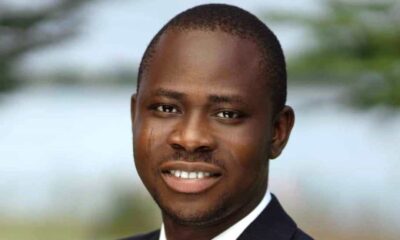GROpinion
[OPINION] Lame President and Presidency


By Niyi Akinnaso
In Nigeria, the terms “the presidency”, “Aso Rock”, and “Abuja” are used in metonymic relationship to the executive branch of the federal government. In comparison to the United States on which our democracy is modelled, Aso Rock is like the White House, while Abuja is like Washington. However the presidency is not a direct equivalent of the administration in American political usage. Rather, it is a creation of President Buhari’s media team. What in the world does it mean?
Well, in Nigerian usage, it refers simultaneously to Aso Rock, Abuja, the Buhari administration, and even to the President himself. Whichever way you want to interpret the term, Buhari is top of mind, that is, he is the person that comes to mind whenever you hear or read about the presidency in Nigeria.
That is the case, however, only until you realize that, sometimes, the presidency is Garba Shehu, Buhari’s Senior Special Assistant on Media. At other times, it is Femi Adesina, the President’s Special Adviser on Media. At yet at other times, it is the opinion of the President’s men or cabal. This is believed to be the extended sense of the term.
It would appear that the goal of the usage is to provide a screen between President Buhari and the public, thereby shielding him from direct communication with the public, if not responsibility and accountability, forgetting that the buck stops on his desk. That’s why it is the presidency that speaks on major issues rather than the President.
In that regard, the brains behind “the presidency” have been very successful. Their success, however, is one of Buhari’s outstanding failures, because it allows two of his major foibles, taciturnity and tardiness, to come to the fore. Buhari neither talks nor acts as expected of a President. And when he does, it is always way too late or inadequate.
One example will suffice for now. This past Monday, August 2, 2021, the tenure of as many as 14 heads of major agencies in the Ministry of Education expired and they reportedly handed over to the most senior officer in their agencies. They were all appointed on August 1, 2016, and inaugurated into office the following day.
True, this has become common practice in the federal bureaucracy, but it has been taken to new heights by President Buhari. Ever since he was first inaugurated as President in 2015, he has never filled any vacancy on time. This is particularly true of vacancies in the Ministry of Education, a delay now playing out again before our eyes. This practice must stop, because it comes with numerous setbacks for accountability, continuity, and good governance.
First, the intervening period between end of tenure and the official appointment of a replacement is fraught with many dangers. How is full accountability guaranteed in the handing over process? How can collusion be averted between the official handing over and “the most senior official” who unceremoniously takes over? Recall that both officials would have worked together for possibly five years. How long will the acting official be in office and how can corruption be checked during the temporary tenure?
I raise these questions not to impugn the integrity of the officials, who handed over last Monday, and those who took over from them; but to point out the loopholes in the process. I also raise them because they could have been avoided altogether.
Buhari, who appointed these officials is still in government. Even if he was succeeded by another politician, there should be records of who took which office and when. In Buhari’s case, he had five full years to consider the extension of their term or replace them. Why wait until their term has ended and still no action?
This is a typical Buhari practice. Recall, for example, the long delay in appointing a Chief Justice after the retirement of Justice Mahmud Mohammed in 2016. Justice Walter Onnoghen, being the most senior Justice on the Supreme Court, was appointed in acting capacity. His appointment was confirmed nearly four months, only to be forced to resign prematurely about two years later under highly controversial circumstances.
Situations like this could easily be avoided. In this digital age, record keeping should no longer be a problem, no matter how large the bureaucracy is. All that is needed is a combination of appropriate computer hardware, software, and well trained ICT hands.
The last time I checked, the Ministry of Education and each of its agencies budgeted for ICT and computers. Save for the excellent job the Joint Admissions and Matriculation Board has done in this regard, you would wonder what the other agencies have done with this budget item. Even more importantly, you would wonder what effort the supervising Ministry of Education has put into keeping track of personnel matters in these agencies to avoid prolonged vacancies in key agencies and federal universities.
All that is needed is to record every appointment made, date by date, and the duration of tenure. Then get a person in the Personnel or Establishment Department to keep track of every appointment and notify the appropriate ministries six months to the end of tenure. Indeed, appropriate personnel management software exists that could be used to flag such information and bring it to the attention of the appropriate official.
In many states, it is the office of the Head of Service that keeps track of such matters. The example of Osun state is instructive. The current Head of Service, Dr. Olowogboyega Oyebade, a cerebral essayist and public intellectual in his own right, publishes a weekly newsletter that contains vital information about the activities of government and personnel matters, including who retires and when.
This brings me back to the president and the presidency. How is information within the government acted upon by the Head of Service, the Chief of Staff, and the Secretary to the Government of the Federation? Assuming that the president may not be able to keep track of everything, what is the presidency (in the extended sense) doing about collating information within the government and advising the President about same? Why do the president and presidency always wait to react, instead of being proactive?
Only a lame president and presidency will continue to act this way and expect effective governance and favourable results.












